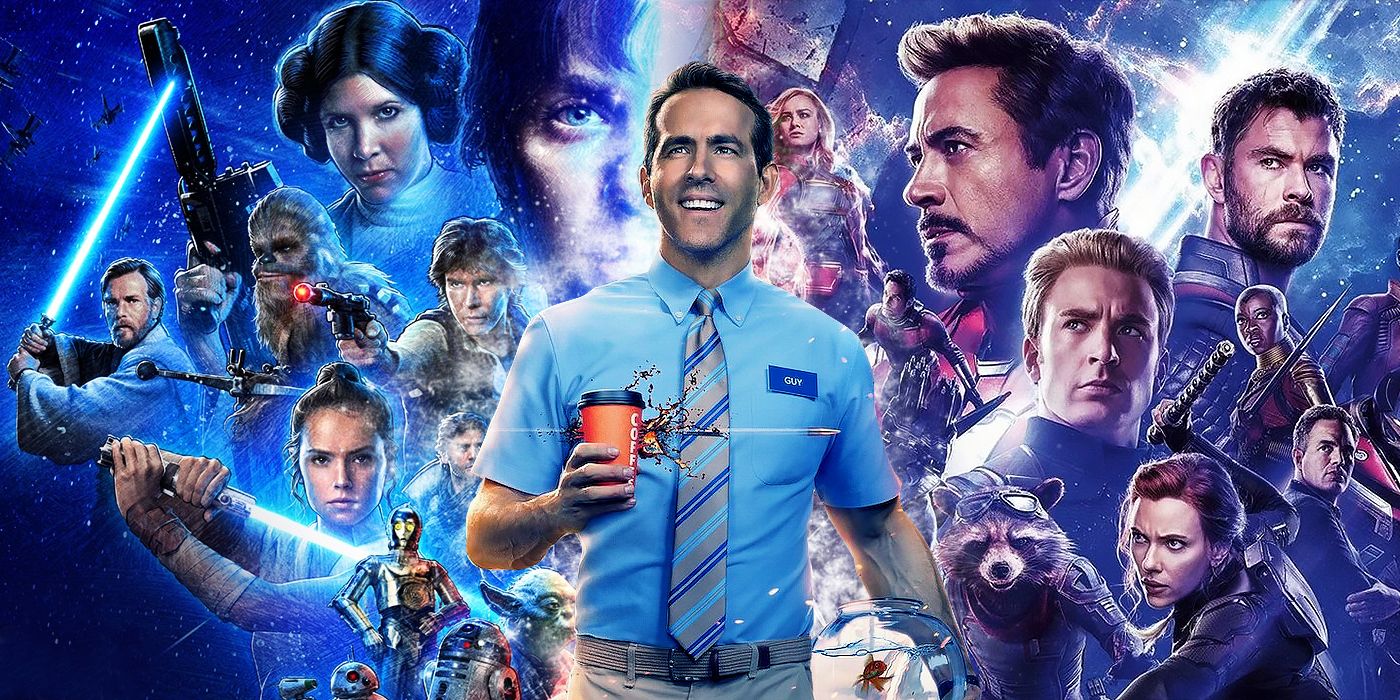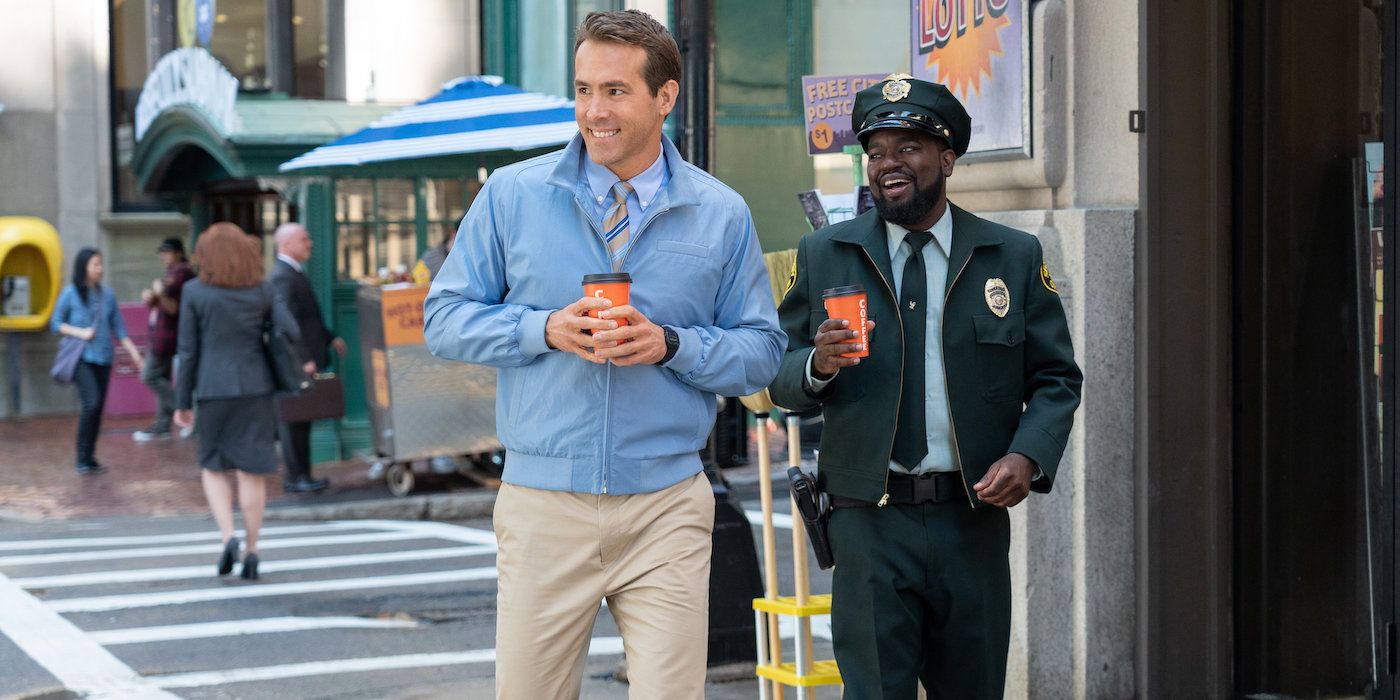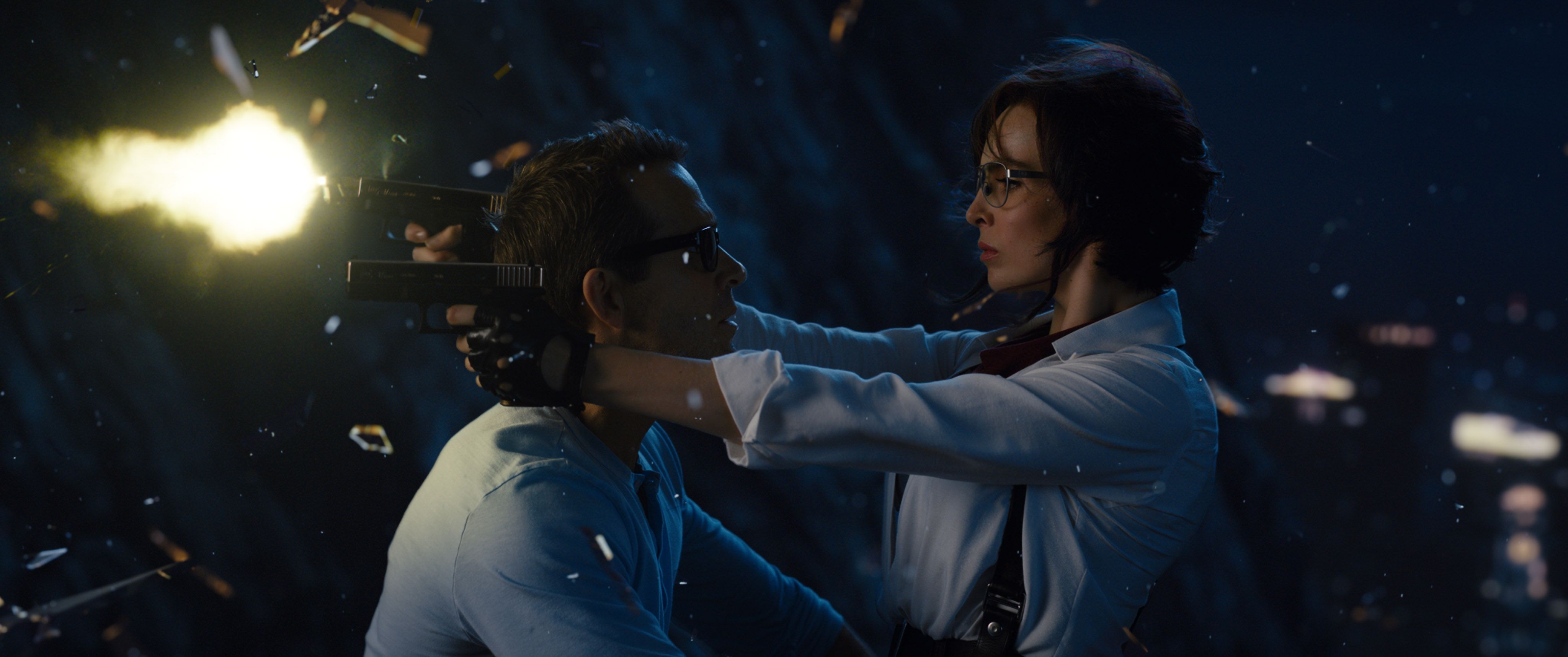[Editor's note: The following contains spoilers for Free Guy.]
Though COVID continues to wreak havoc on box-office numbers, we at least had a summer movie season this year with studios finally starting to release some of their long-delayed crowd-pleasers into theaters. For many, one of the summer’s biggest surprises turned out to be Free Guy, 20th Century Studios’ action-comedy that has Ryan Reynolds playing a video-game non-player character (or NPC) who breaks out of his programming. Free Guy has been a hit with both critics (82 percent on Rotten Tomatoes) and audiences ($58 million earned domestically in its first 10 days), proving once again that a film doesn't need to be a sequel or part of a shared cinematic universe to make a dent in the pop-culture consciousness.
Free Guy even trumpets its own originality by planting an “anti-franchise” message as one of its central themes. Which totally seems like fair play … at least until the film shoots itself in the foot for some easy, cross-franchise pandering in its own climax. Securing audience goodwill by featuring cameos from other popular established franchises has always felt a little desperate, though it’s grown in practice in recent years as movies like Ready Player One and Space Jam: A New Legacy used their anything-goes storylines to jam in as much recognizable IP as possible. While its video-game setting allows for similar shenanigans, Free Guy wisely avoids it for most of its running time before capitulating entirely to the cheap dopamine rush of referencing other properties you love.
Near the end of the film, Reynolds’ self-aware NPC bank teller, who is named Guy, is forced to square off against a beefed-out and upgraded version of himself named Dude (also played by Reynolds) who’s been sent to kill him. It’s a tough battle, so Guy scans through his in-game inventory for some help, where he finds Captain America’s shield, a Hulk fist, and a glowing Star Wars lightsaber. In turn, he pulls each of them out to use against Dude, and each is accompanied by a blast of iconic music — either Alan Silvestri’s Avengers theme or a bit of John Williams’s Star Wars fanfare. Cap’s shield even comes with a little cameo from Chris Evans, who, like the rest of the world, is watching these digital events play out on his phone.
It’s meant to give you goosebumps -- a little blast of “oh yeah I love that thing and now it’s here in the movie I’m watching.” But it’s a moment that manufactures an emotional response based on movies other than the one you’re currently watching — a cheap tactic that’s never as effective as springing feel-good moments from the narrative and characters you’re meant to be engaging with. I’m all about seeing a big summer blockbuster with moments that make an audience break out in applause. God knows we haven’t had enough of them over the last year and a half. But, in this case, these little IP cameos are completely antithetical to the anti-franchise message Free Guy had been selling up to this point, which makes the entire sequence ring extremely false.
Free Guy’s villain, Antwan (Taika Waititi), is a video-game developer who stole the code for a promising, original game called Life Itself from the film’s two flesh-and-blood heroes, programmers Millie (Jodie Comer) and Keys (Joe Keery). Life Itself is not like most video games; it’s a non-violent exploration game with a lush, evolving landscape that looks a bit like Will Wright’s 2008 life-simulation game, Spore. It is Life Itself’s complex, AI-friendly code that allows for Guy to become self-aware and lead a revolution from inside Free City, Antwan’s hyper-violent, Grand Theft Auto-esque, open-world game. Outside of the game, Antwan spends the movie scheming to release the cynical Free City 2 to huge profits while also deleting Free City 1 from his servers, which will erase Guy, screw over all the Free City 1 players (who will lose all their in-game items and have to pony up to keep playing), and cover up the fact that he stole Keys and Millie’s game. (Got all that?)
None of this is really indicative of how the video-game industry actually works in real life. And even Free City itself might seem a little sketchy to actual gamers. (Don’t get me started on the “Bank Mission” that Guy’s character is programmed to take part in. He just lays down on the floor when one of the player-controlled robbers comes in to clean out the bank. As do all the guards. As does everyone in the bank. What kind of mission is this? Aren’t video games supposed to offer up a challenge for the player? But I digress …) As movie shorthand, it all works fine. It’s made very clear that Antwan is a con artist who values cold, hard cash over artistic expression and that Free City 2 represents callous franchising meant to snuff out a promising, original vision.
The entire storyline feels like it’s intended to serve as a clarion call for fresh ideas, until that call is quickly and brutally negated by the IP cameos in the climax. Look, I get why they happened. Free Guy was originally a 20th Century Fox production, but when that studio was sold to Disney before the film’s release, Reynolds and director Shawn Levy couldn’t help but see if they could pull a few toys out of the toybox. In a recent interview with Collider, Levy even said, "I've never had the experience like being in a theater when that moment in Free Guy comes up where it's the shield and then it's Chris and then it's Hulk fist and then it's a fucking lightsaber that they don't just like, you know those reaction videos we've all watched a million times on Instagram, the Endgame reaction videos, right? Where 'Avengers Assemble' was, I'd never had that experience where people are out of their seats, cheering. Not like laughing like a regular comedy, but cheering -- something more primal. And that's where I realized, wow. The love affair with that IP, with those heroes, with those legacies, it's profound and it's emotional for people."
But the problem is those Avengers: Endgame reaction videos Levy mentions happened because of how invested moviegoers became with those particular characters. Stealing that goodwill to artificially boost crowd engagement with your own movie is usually not a good look. But it’s particularly egregious when your film seems to be arguing in favor of an original artistic vision for the rest of its runtime. Assuming Free Guy 2 happens (and Reynolds says it looks like it will), let’s hope Guy leaves the lightsaber stashed deep in his inventory for his second digital adventure.




